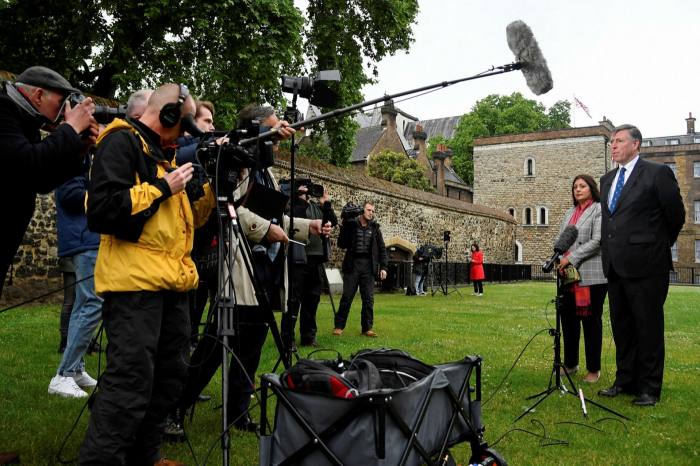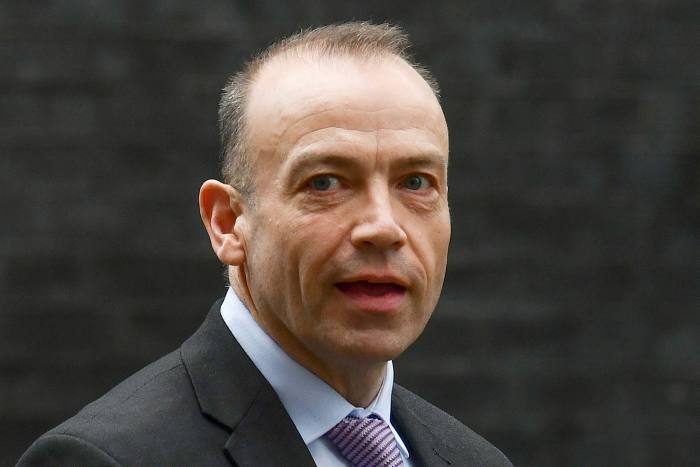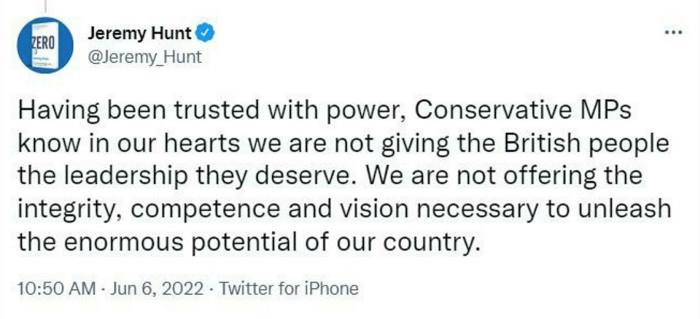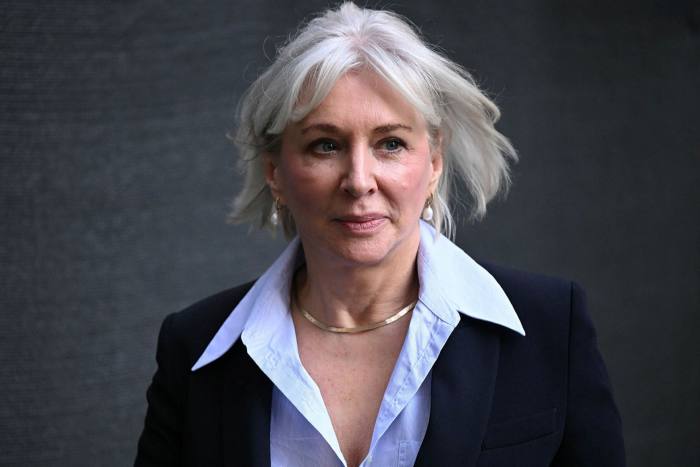Boris Johnson was about to set off for the final part of Queen Elizabeth’s platinum jubilee celebrations on Sunday when he was told that in little more than 24 hours he would be fighting for his political life.
The prime minister’s allies had been insisting for days that rebel Tory MPs did not have the numbers to force a vote of no confidence in him; Grant Shapps, Johnson’s loyal transport secretary, said in weekend television interviews that he did not think there would be a vote this week.
But Sir Graham Brady, chair of the 1922 committee of backbench Conservative MPs, told Johnson in a phone call on Sunday that opposition to his leadership had hardened over a week-long parliamentary recess and a vote would take place on Monday.
Many Tory MPs had spent the week talking to angry constituents about the partygate scandal and a report by Sue Gray, a senior civil servant, that criticised Number 10. Johnson’s fate was now in the hands of his MPs.
The putative coup against Johnson was triggered after Brady confirmed that the threshold for a no-confidence vote — a withdrawal of support by 15 per cent of the Tory parliamentary party, or 54 MPs — had been reached.

But it caught many by surprise. Chris Heaton-Harris, Johnson’s chief whip and the man in charge of imposing party discipline, had gone off on holiday in the Whitsun recess, although allies said he was working.
Other senior members of Johnson’s team were also away, meaning potential rebels were left to their own devices. “I didn’t receive a single call last week and neither did most of my colleagues,” said one. “There’s no operation to save Boris.”
One former cabinet minister said that while Johnson’s team seemed to have been blindsided, there was scarcely any more co-ordination by potential leadership rivals to Johnson.
“There’s been no evidence of an operation on either side,” added the former minister. “By now you’d expect to see the rebels organising concerted ministerial resignations.”
Johnson was facing an accidental coup, in the sense that nobody seemed fully prepared. The prime minister had little more than 24 hours to prepare his defences before voting started at 6pm on Monday in the House of Commons.
After smiling his way through the royal pageant on Sunday, Johnson assembled his closest allies in Downing Street, including strategist Lynton Crosby, chief of staff Steve Barclay, communications chief Guto Harri, and Heaton-Harris.

It was agreed Johnson would tell MPs on Monday that he was a proven winner and that he would deliver “Conservative” policies including tax cuts. A ministerial reshuffle would reward the loyal and punish the disloyal.
Some Tory MPs argued the swift vote favoured Johnson: it gave his opponents little time to mobilise. Number 10 said it would give the prime minister a chance to draw a line under “months of speculation”.
The vote also came several weeks before parliamentary by-elections in the Conservative-held seats of Wakefield in the north of England and Tiverton and Honiton in the south-west. Defeat in both of those constituencies might have provided Tory rebels with further proof of Johnson’s declining popularity.
However other MPs said the timing was ominous for Johnson, who was confronted by some of those who had spent the weekend meeting angry voters at street parties and other jubilee events in their constituencies.
“The prime minister thought he would bask in the jubilee but it has done the reverse,” said another former cabinet minister, noting that the boos aimed at Johnson at a St Paul’s Cathedral thanksgiving service had shaken many Tory MPs.
One member of the government said the image had stuck in the minds of wavering MPs. “Those should be our people,” she added. “When you’ve lost flag-waving patriots, you are really in trouble.”
The mood among MPs returning to Westminster was rancorous. Jesse Norman, a former Conservative minister, said in a scathing letter to Johnson that the prime minister had created “political and cultural dividing lines mainly for your advantage”. His policy on deporting migrants to Rwanda was “ugly”.
Throughout Monday rebels urged colleagues to bring the prime minister down.
Jeremy Hunt, former foreign secretary and a leadership rival, tweeted that “Conservative MPs know in our hearts we are not giving the British people the leadership they deserve. We are not offering the integrity, competence and vision necessary to unleash the enormous potential of our country”.

The problem facing Johnson — familiar to other Tory leaders tested in a confidence vote — is that the very fact a ballot is talking place reflects a breakdown of discipline, usually accompanied by internecine resentment, even hatred.
Nadine Dorries, culture secretary, launched a withering attack on Hunt, claiming that during his time as health secretary he had left the country’s defences against Covid “wanting and inadequate”.
She added: “Your duplicity right now in destabilising the party and country to serve your own personal ambition, more so.” Johnson has been helped by the fact that there is no clear alternative to him waiting in the wings.
Cabinet ministers, some of whom hope to succeed Johnson, raced to express their backing for the prime minister. It has long been a Tory maxim that “the one who wields the knife, never wears the crown”.
Liz Truss, foreign secretary, tweeted: “The prime minister has my 100 per cent backing in today’s vote and I strongly encourage colleagues to support him.” Rishi Sunak, chancellor, followed soon after.

A group of Tory donors, who have given more than £18mn to Conservative party coffers, lent their support to Johnson. The prime minister’s allies claimed that much of their support would dry up if he was ousted.
Meanwhile Jacob Rees-Mogg, Johnson’s loyal Brexit opportunities minister, said a victory for the prime minister by just one vote on Monday evening would be “enough” for him to survive.
However Rees-Mogg knows that it is not that simple. In December 2018 the then prime minister Theresa May won a vote of no confidence by a margin of 200 to 117, but Rees-Mogg — at that time himself a rebel Tory — called it a “terrible result” and said she should resign. May was indeed forced to quit six months later.
Stay connected with us on social media platform for instant update click here to join our Twitter, & Facebook
We are now on Telegram. Click here to join our channel (@TechiUpdate) and stay updated with the latest Technology headlines.
For all the latest Business News Click Here
For the latest news and updates, follow us on Google News.
